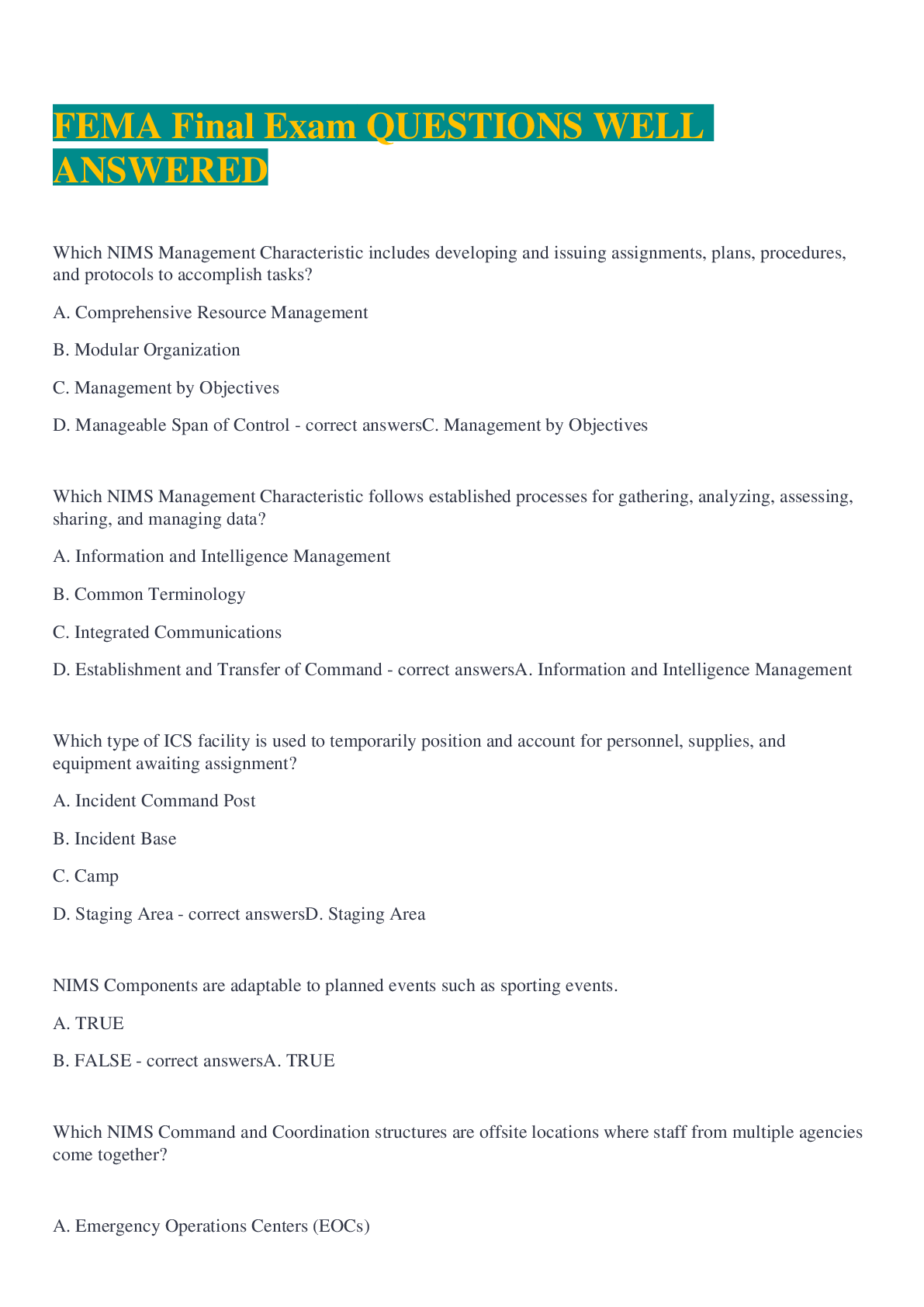NURS 611 Patho – Maryville QUESTIONS WELL ANSWERED 2022/2023
Document Content and Description Below
What is Apoptosis? A programmed cell death What is necrosis? Death of most or all of the cells in an organ or tissue due to disease, injury, or failure of the blood supply. 00:... 21 01:22 Characteristics of tissue necrosis 1) Rapid loss of of the plasma membrane structure 2) Organelle swelling 3) Mitochondrial dysfunction Hypoxia What is the #1 major cause of cellular injury leading to necrosis. (especially the kidney and heart) What is hypertrophy? Is an increase in the size of cells Physiologic hypertrophy Hypertrophy of myocardial cells such as in endurance training Pathologic hypertrophy Occurs secondary to HTN What is Hyperplasia Increase in the number of cells Pathological hyperplasia Endometrial hyperplasia Compensatory hyperplasia Removal of 70% of the liver- can regenerate in about 2 weeks What is Metaplasia Replacement of cells Example of Metaplasia Normal columnar ciliated epithelial cells of the brohchial lining have been replaced by stratified squamous epithelial cells 00:02 01:22 During ischemia, what effect does the loss of the ATP levels have on cells? Reduction in ATP levels causes the plasma membrane's sodium-potassium pump and sodium-calcium exchange to fail, which leads to an intracellular accumulation of sodium and calcium and diffusion of potassium out of the cell. Sodium and water then can enter the cell freely, and cellular swelling results. Free radicals play a major role in the initiation and progression of which diseases? These reactive oxygen species play major roles in the initiation and progression of cardiovascular alterations associated with hyperlipidemia, diabetes mellitus, hypertension, ischemic heart diseases, and chronic heart failure. What are free radicals? Electrically uncharged atom or group of atoms having an unpaired electron. How are free radicals formed? Having one unpaired electron makes the molecule unstable; thus to stabilize, it gives up an electron to another molecule or steals one. Free radical species Are capable of injurious chemical bond formation with proteins, lipids, carbohydrates - key molecules in membranes and nucleic acids. What are the Lysosomes? Enzymatic digestion of cellular organelles, including the nucleus and nucleolus, halting synthesis of DNA and RNA What are peroxisomes? membrane-bound organelles in most Eukaryotic cells, primarily involved in lipid metabolism and the conversion of reactive oxygen species such as hydrogen peroxide into safer molecules like water and oxygen How does the body metabolize Ethanol Liver enzymes metabolize ethanol to acetaldehyde which causes hepatic cellular dysfunction. Peroxisomes help detoxify ethanol. Which cell component is the most vulnerable target of radiation? DNA What is Sarcopenia Muscular atrophy What are some example of aging of cell/tissues - Increased peripheral vascular resistance - Decreased production of HCL and delayed emptying of the stomach - Decreased immune response What are indications of dehydration? Headache, thirst, dry skin, and mucous membranes, elevated temperature, weight loss, and decreased or concentrated urine. Skin turgor may be normal or decreased. S/sx of hypovolemia, including tachycardia, weak pulses, dizziness, and postural hypotension. Oncotic pressure A form of osmotic pressure exerted by proteins, notably albumin, in a blood vessel's plasma (blood/liquid) that usually tends to pull water into the circulatory system. What activates osmoreceptors? An increase in osmotic pressure of the plasma Low plasma albumin causes edema as a result of what? A reduction in plasma oncotic pressure Atrial natriuretic peptide (ANP) Produced by the myocardial atria Brain natriuretic peptide Produced by the myocardial ventricles What are the antagonists of the Renin-Angiotensin-Aldosterone System (RAAS) Natriuretic Peptides: ANP, BNP, and urodilation with the kidney What are the effects of natriuretic peptides? Decrease blood pressure and increase sodium and water excretion. What is the Renin-Angiotensin-Aldosterone System (RAAS)? Is a hormone system that regulates blood pressure and fluid balance. How does the Renin-Angiotensin-Aldosterone System (RAAS) function? When renal blood flow is reduced, juxtaglomerular cells in the kidneys convert the precursor - prorenin, already present in the blood into renin and secrete it directly into the circulation. Plasma renin then carries out the conversion of angiotensinogen, released by the liver, to angiotensin I. [2] Angiotensin I is subsequently converted to angiotensin II by the angiotensin-converting enzyme (ACE) found in the lungs. Angiotensin II is a potent vasoconstrictive peptide that causes blood vessels to narrow, resulting in increased blood pressure. [3] Angiotensin II also stimulates the secretion of the hormone aldosterone from the adrenal cortex. Aldosterone causes the renal tubules to increase the reabsorption of sodium and water into the blood, while at the same time causing the excretion of potassium (to maintain electrolyte balance). This increases the volume of extracellular fluid in the body, which also increases blood pressure. Increased plasma osmolality Secretion of antidiuretic hormone (ADH) and the perception of thirst are stimulated by __________ Normal Na+ levels 135-145 meq/L Clinical manifestations of severe hypernatremia confusion, convulsions, cerebral hemorrhage, and coma [Show More]
Last updated: 2 years ago
Preview 1 out of 16 pages

Buy this document to get the full access instantly
Instant Download Access after purchase
Buy NowInstant download
We Accept:

Reviews( 0 )
$15.00
Can't find what you want? Try our AI powered Search
Document information
Connected school, study & course
About the document
Uploaded On
Nov 15, 2022
Number of pages
16
Written in
Additional information
This document has been written for:
Uploaded
Nov 15, 2022
Downloads
0
Views
53

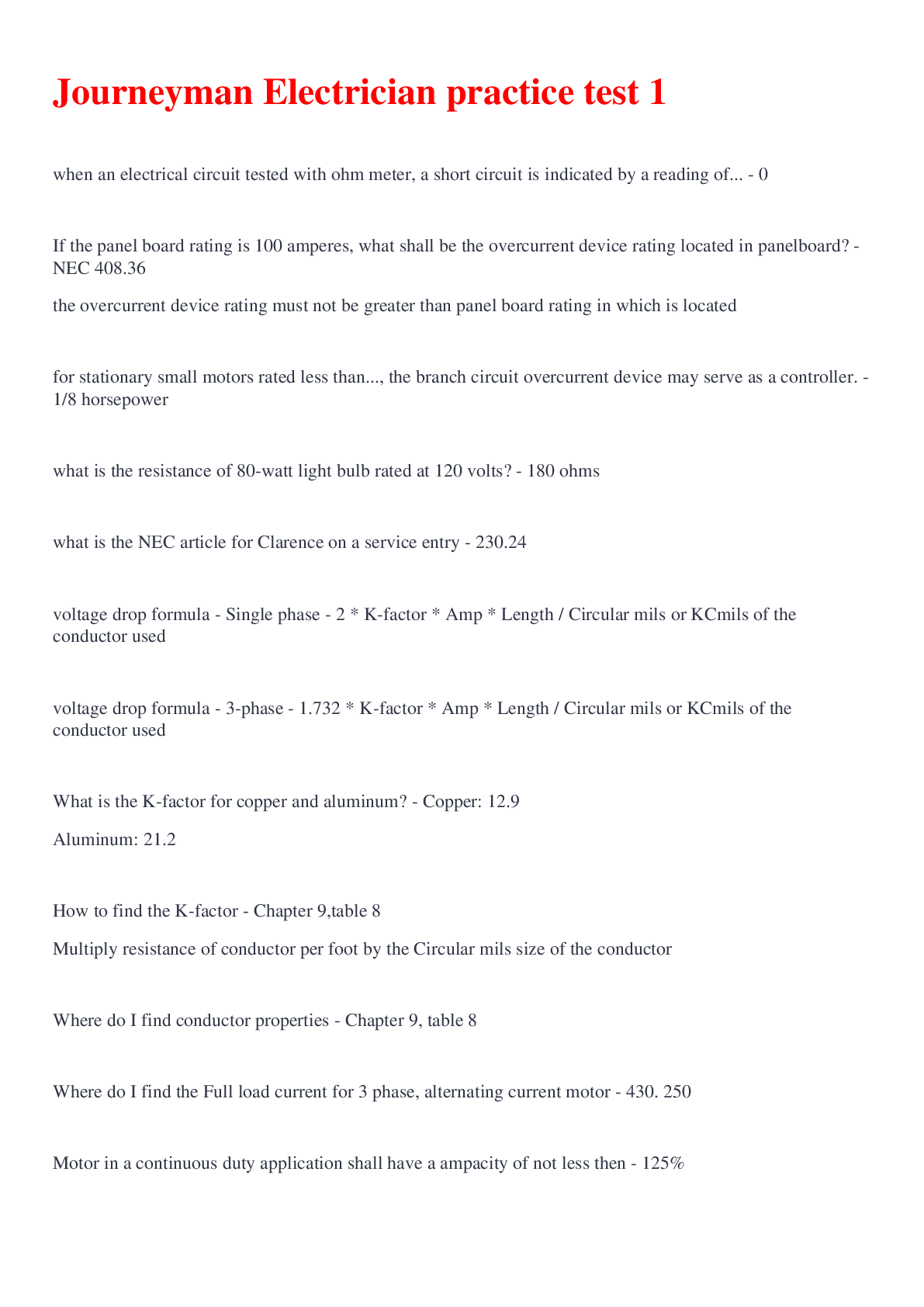

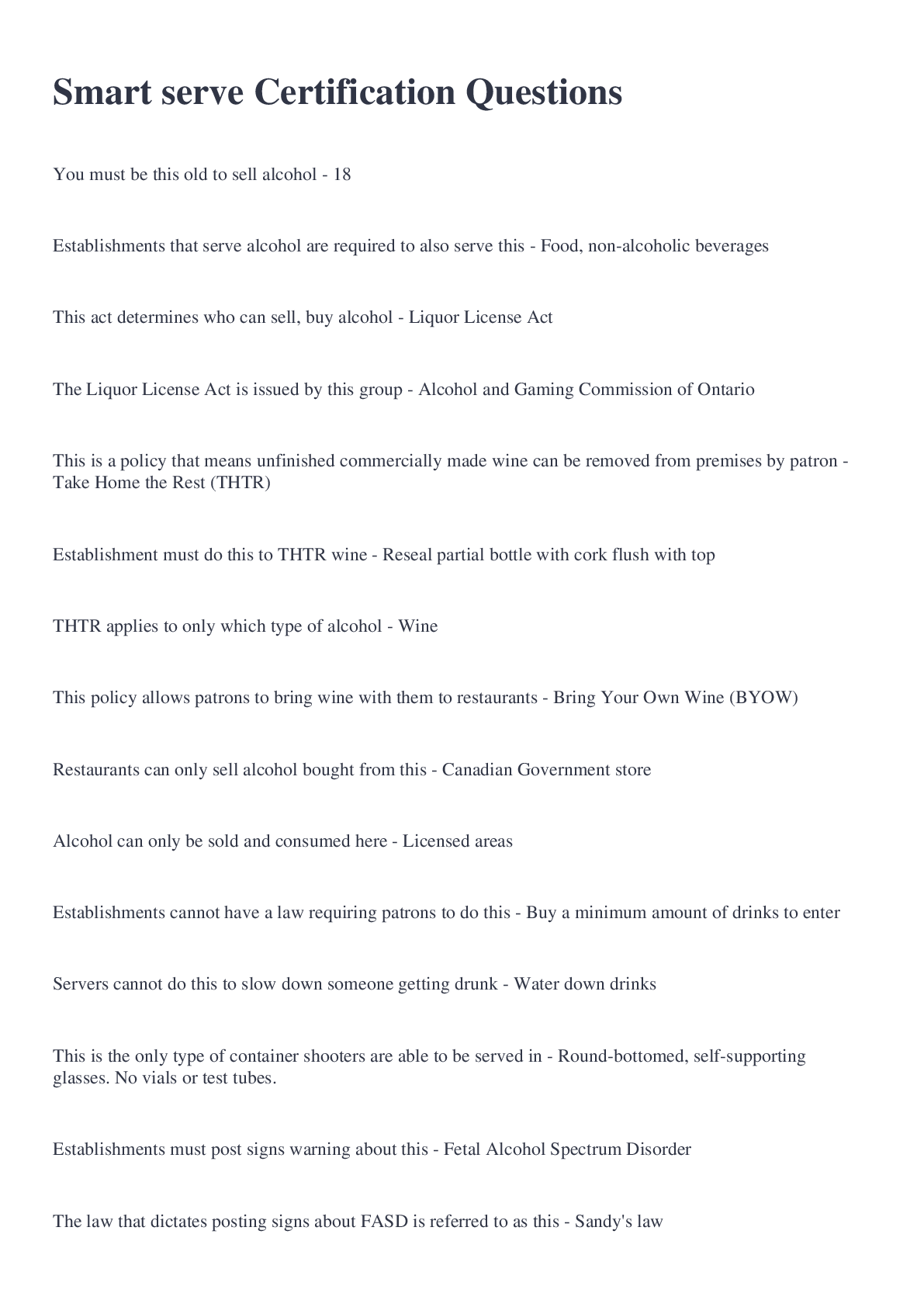
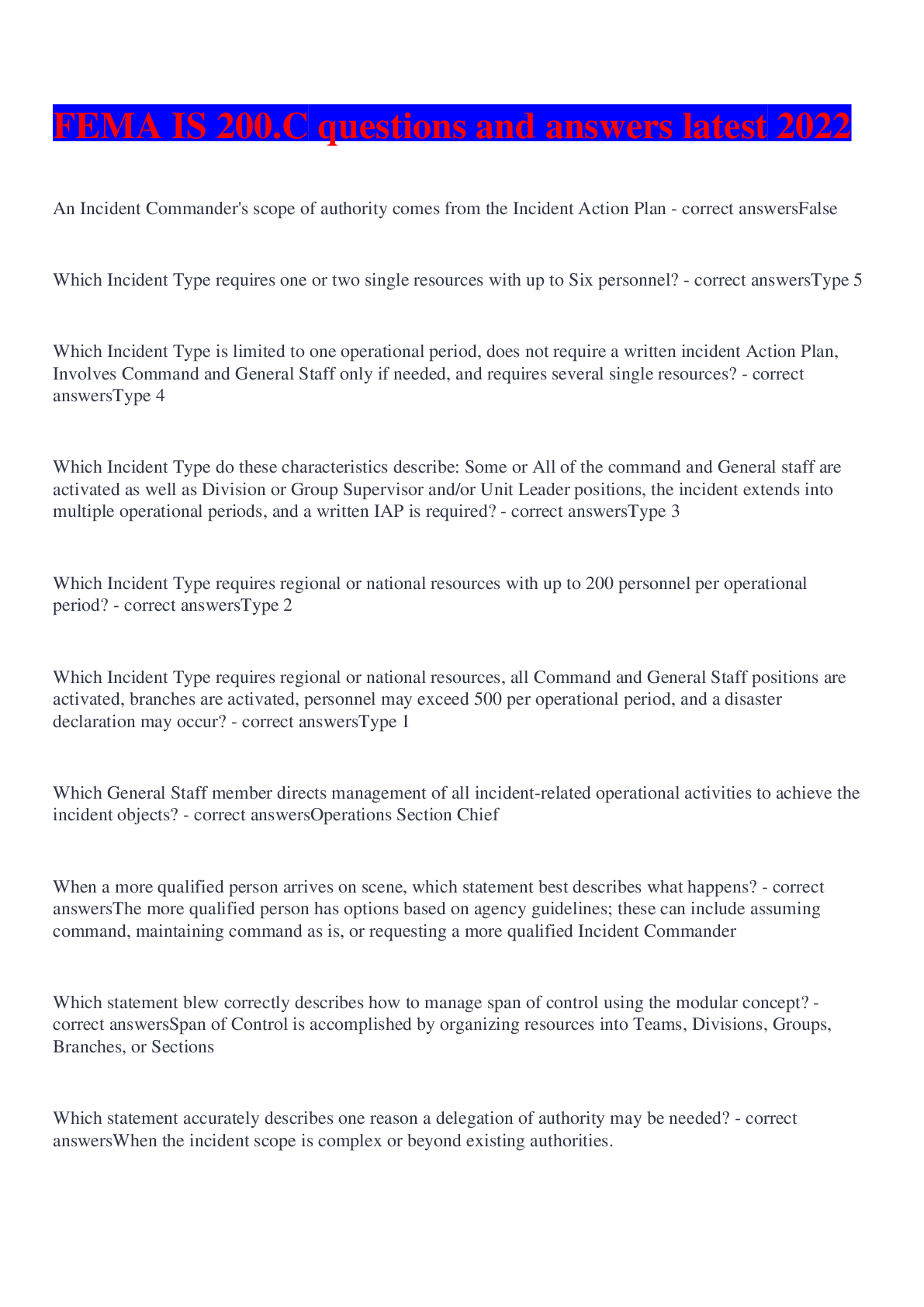
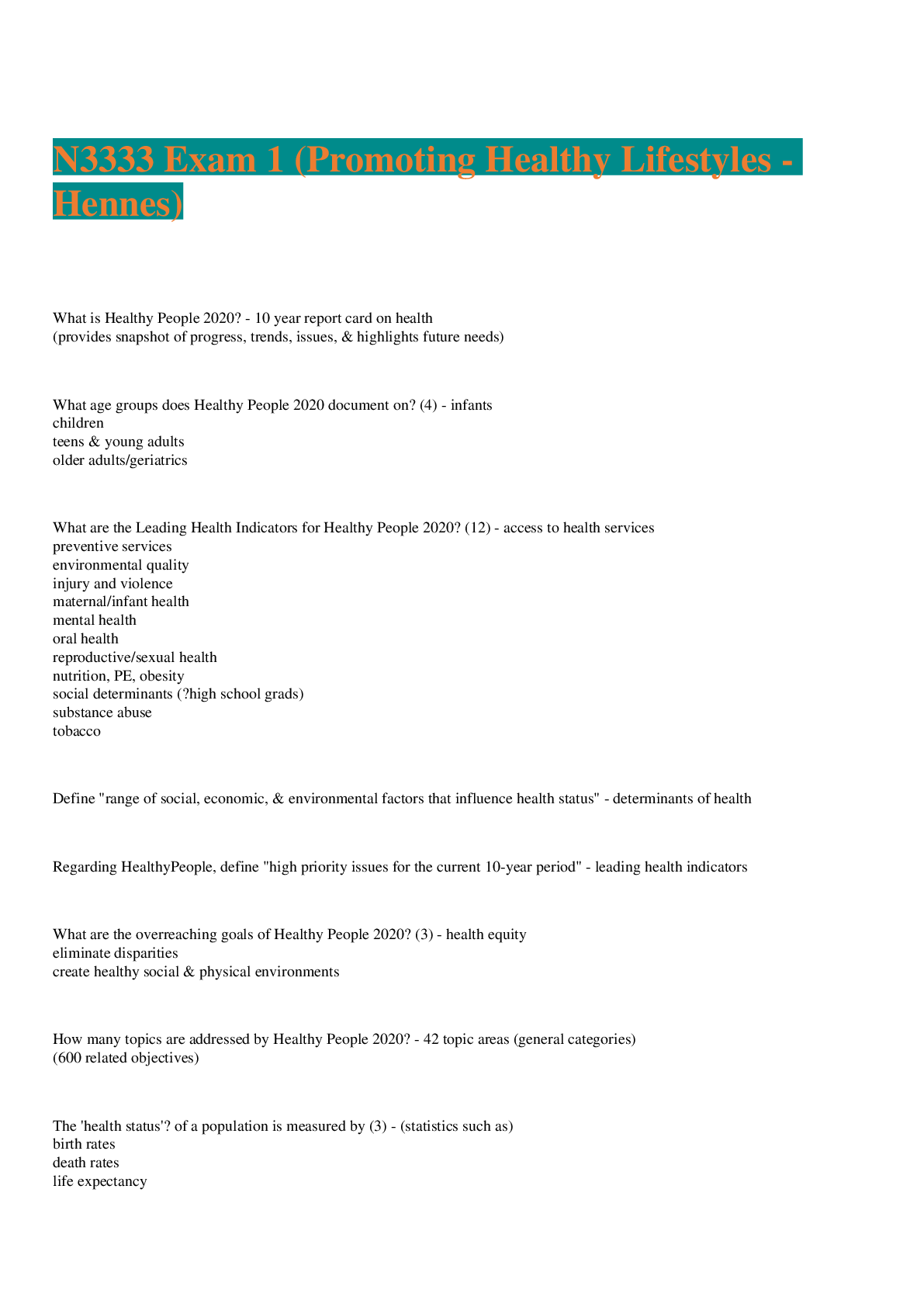
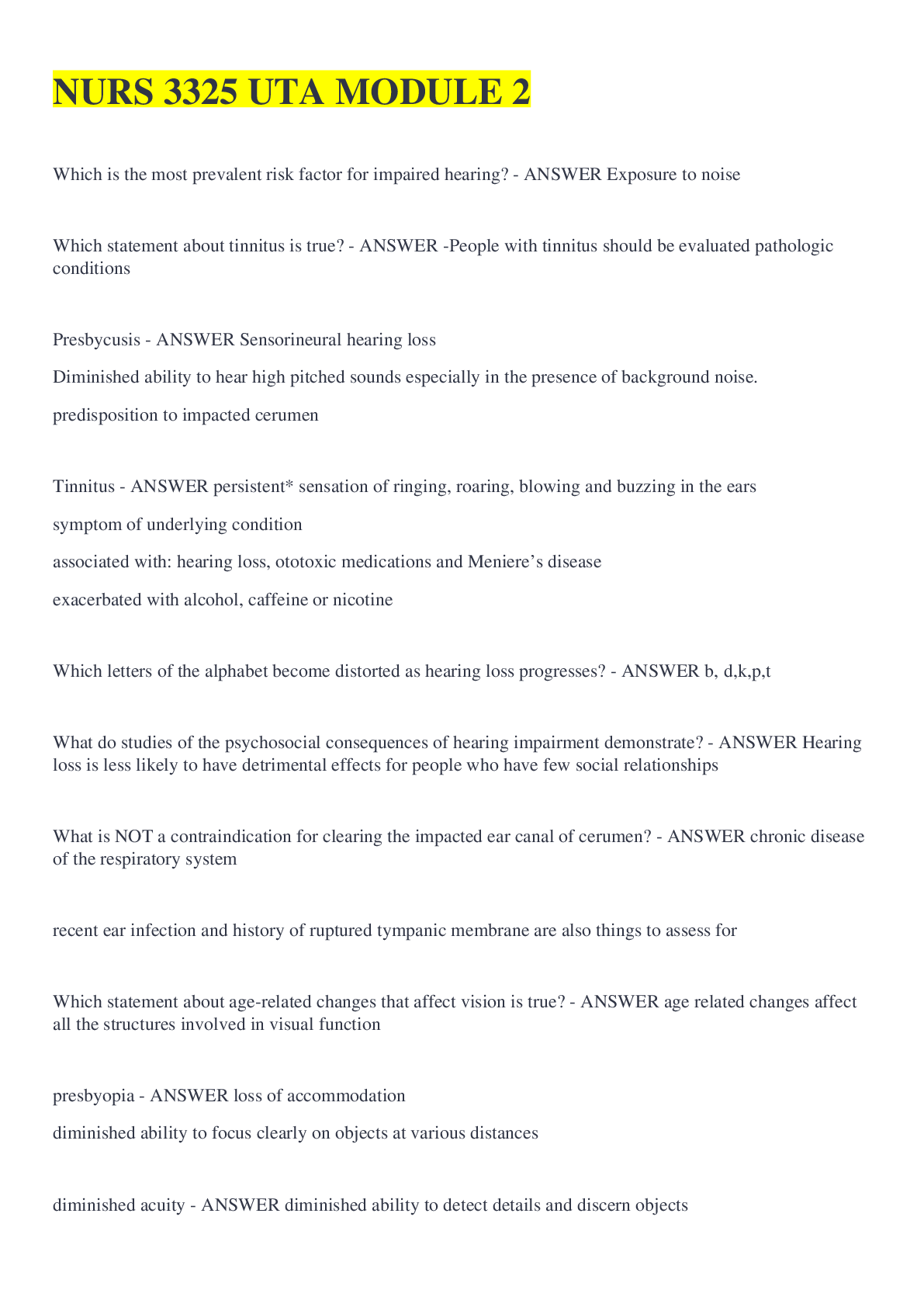
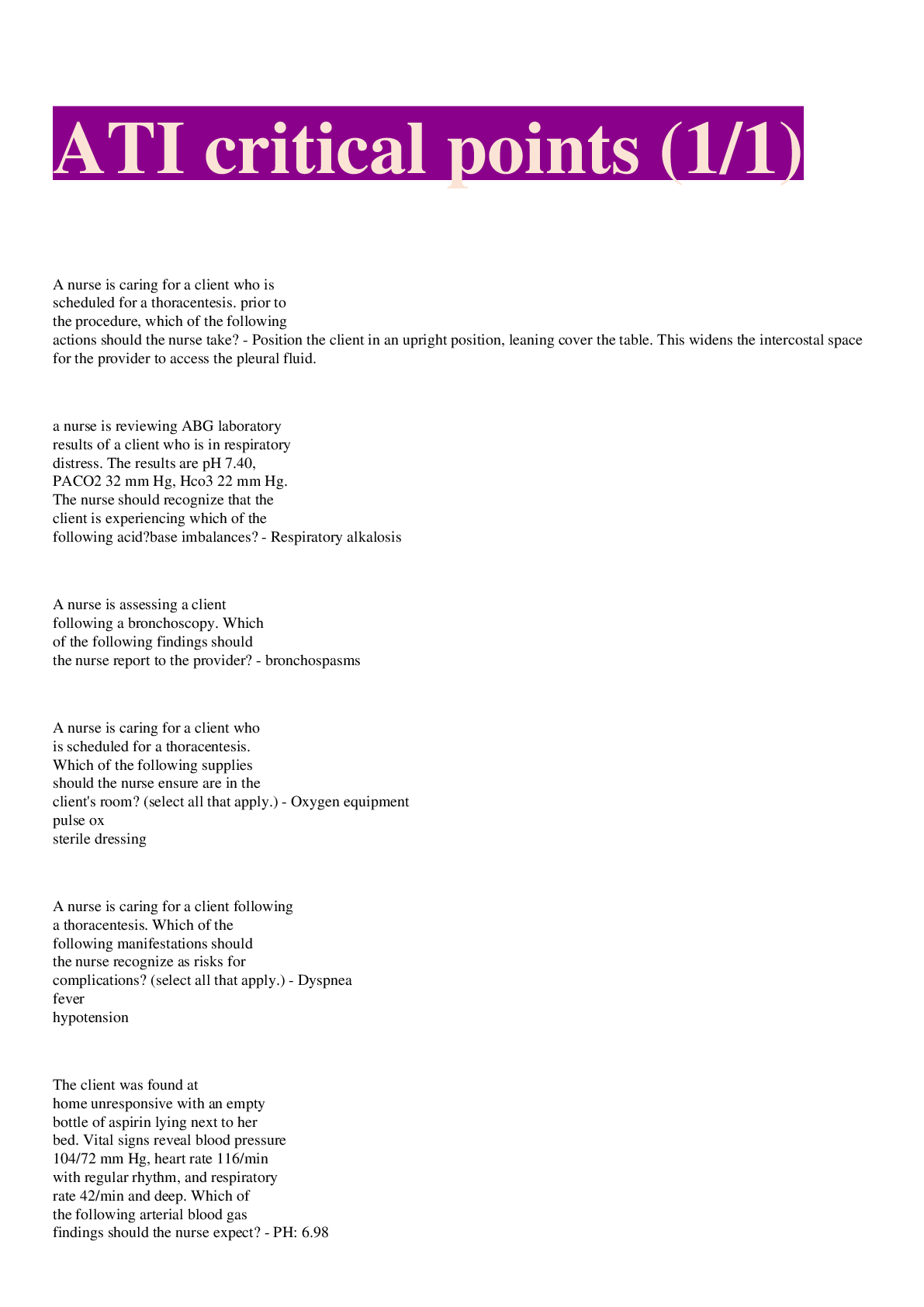
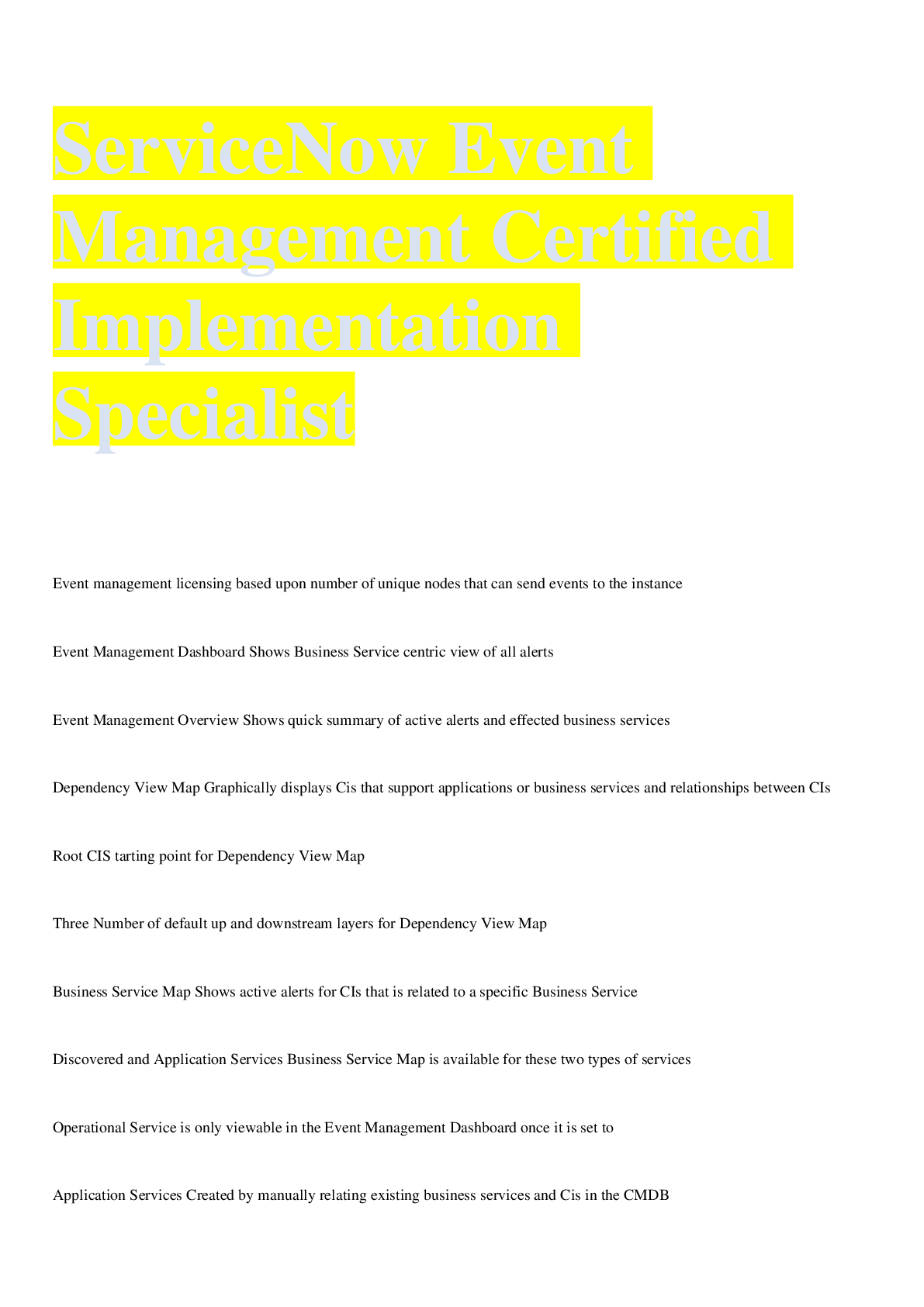
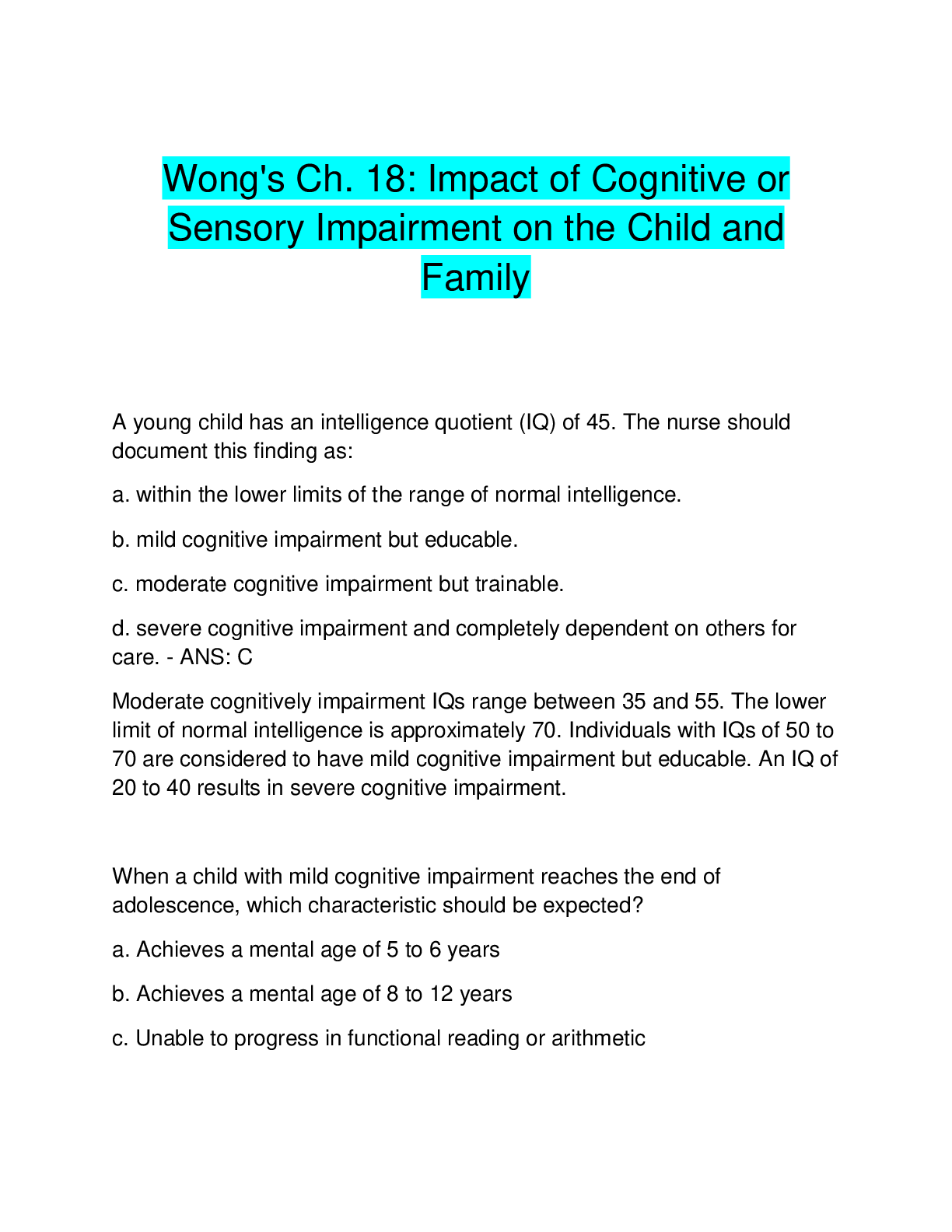
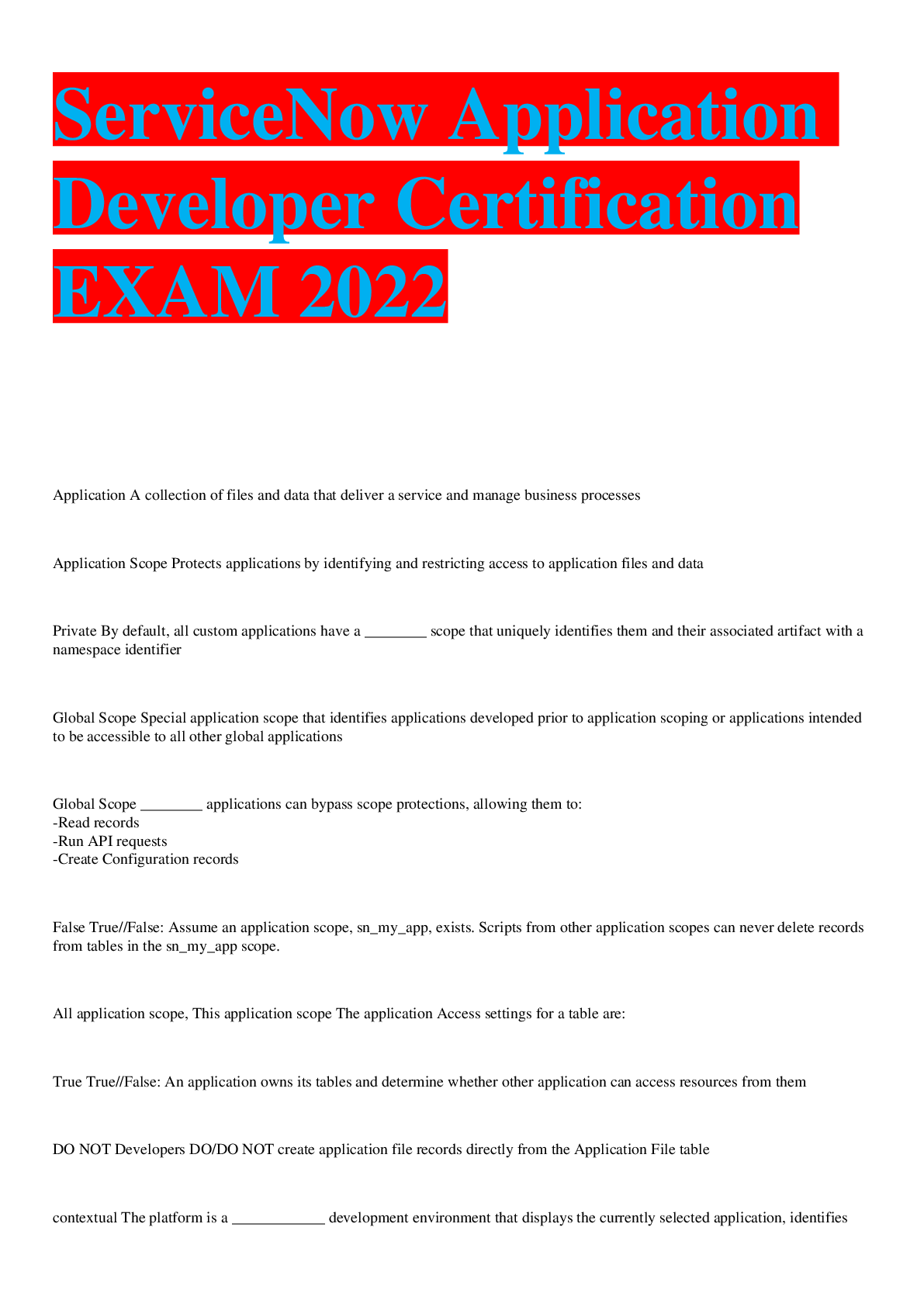
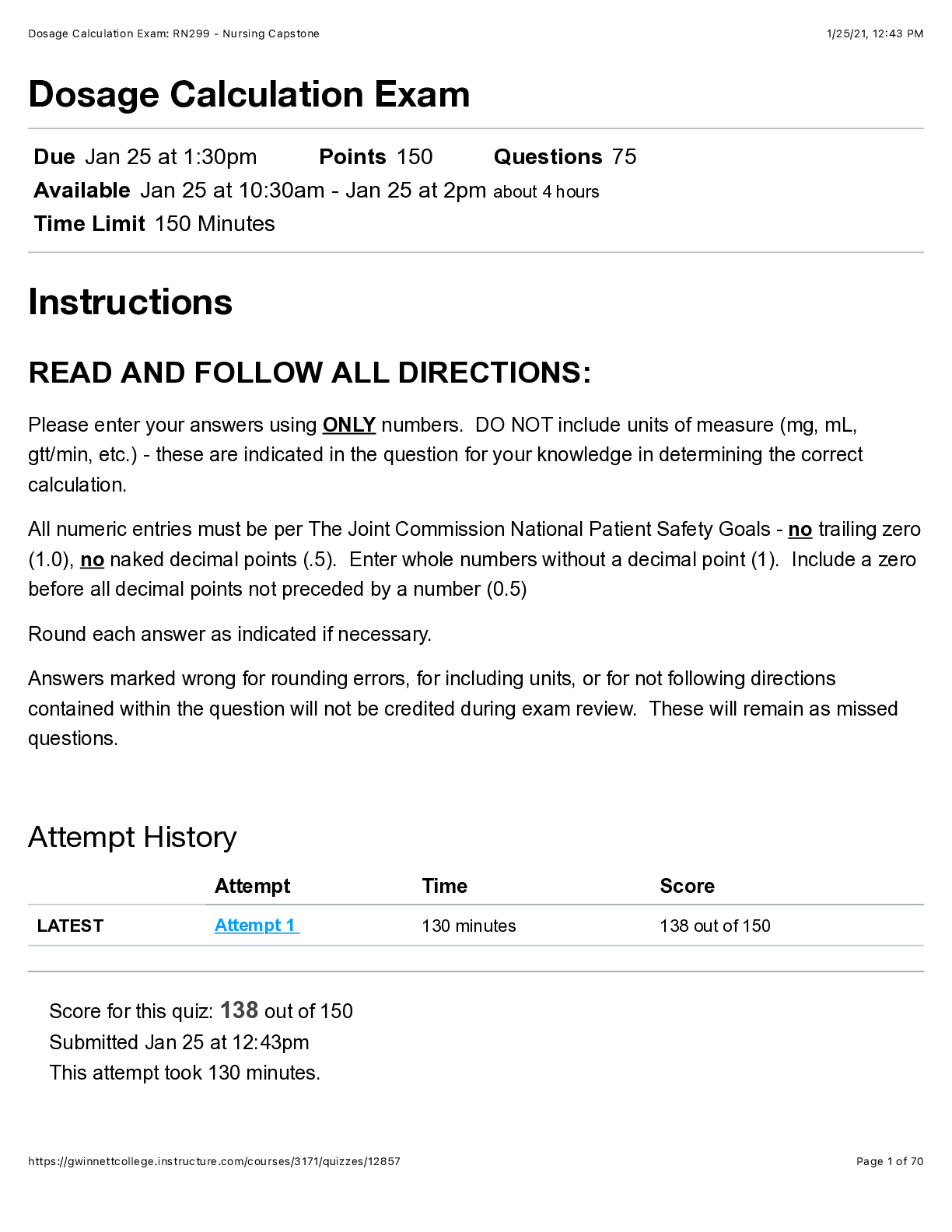
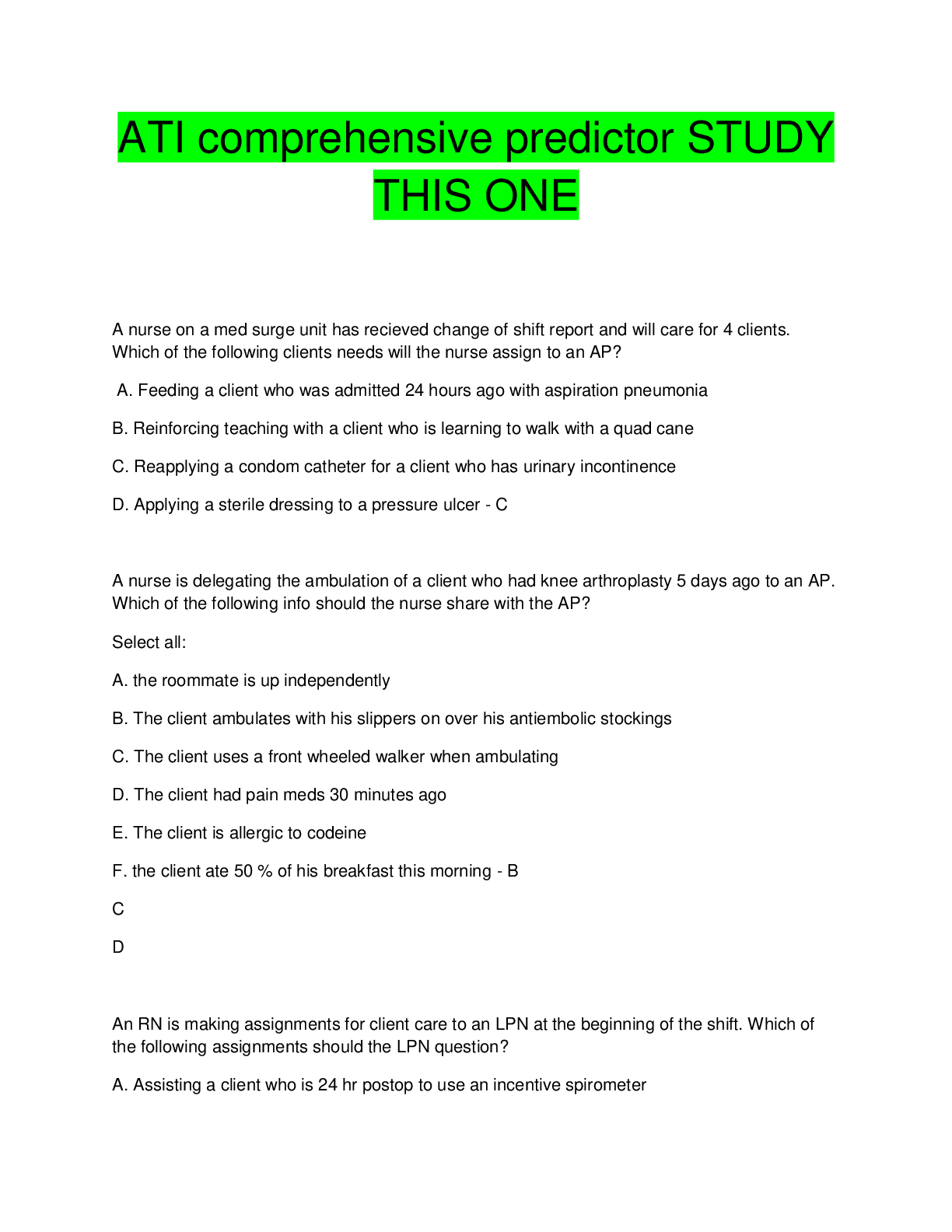







.png)



